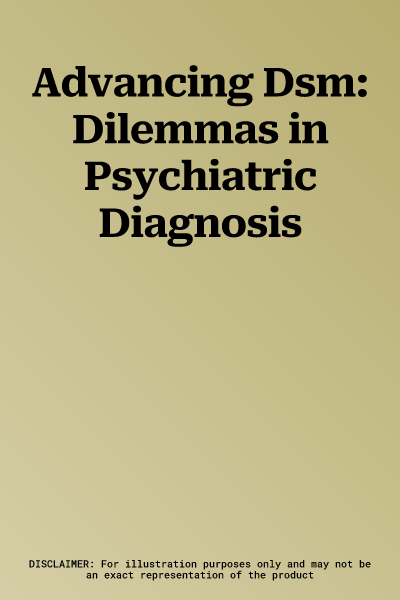In Advancing DSM, leading psychiatric clinicians and researchers
contribute case studies that are unresolved, are rife with controversy,
and illuminate limitations of the current diagnostic system. Along with
analysis of clinical cases, the contributors recommend broad changes to
DSM to incorporate new knowledge from psychiatry and neuroscience and
findings from new methods of diagnostic testing.
Advancing DSM is a rich treasury of intriguing information for all
clinicians and researchers. You will - Develop an understanding of some
of the shortfalls of the current system that will help you make better
clinical decisions. Accurate diagnosis is the foundation for selecting
the best treatment, determining prognosis, and enhancing our
understanding of patients. With the help of real-world case examples,
you'll develop a solid understanding of the complexities involved in
making clinical diagnoses.- Learn about developments that will advance
future editions of DSM. Find out how new developments in psychiatry and
neuroscience and new diagnostic testing tools such as functional MRI are
changing the face of psychiatric diagnosis and will inform future
editions of DSM.- Be alerted to some of the vital questions that must be
answered before a new DSM is developed. Each chapter raises important
questions to answer if we are to develop new, more accurate, and more
reliable diagnoses. For example, how do we determine the causes of
mental disorders? How do we define a mental disorder? How should the
groupings of disorders be revised to reflect information on etiology and
pathophysiology? What are the implications of laboratory testing and
neuroimaging for psychiatric diagnosis and practice? and many more.
DSM has been a landmark achievement for the field. By allowing reliable
diagnosis, it has brought order out of chaos and fostered groundbreaking
advances in research and clinical care. Advancing DSM will brief you on
exciting changes in psychiatry today that will impact the DSM of
tomorrow.

